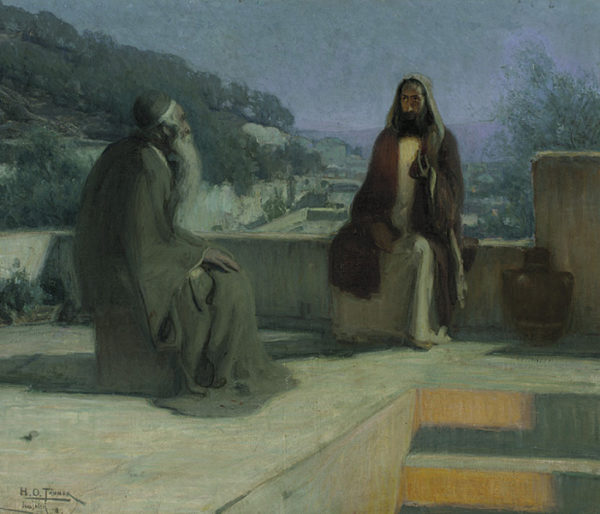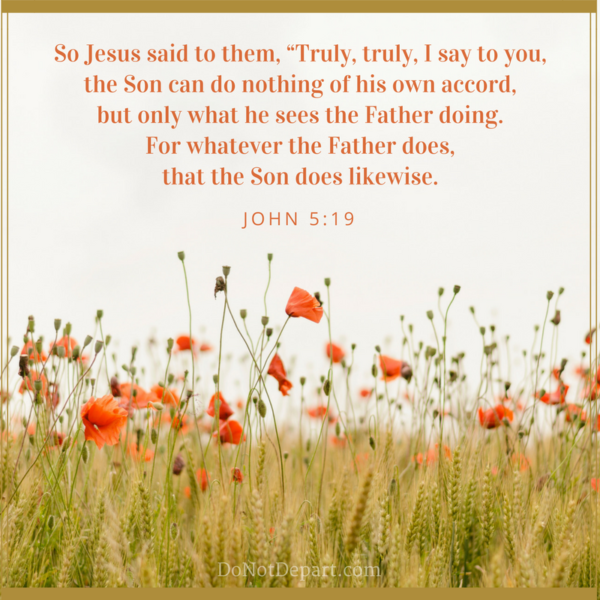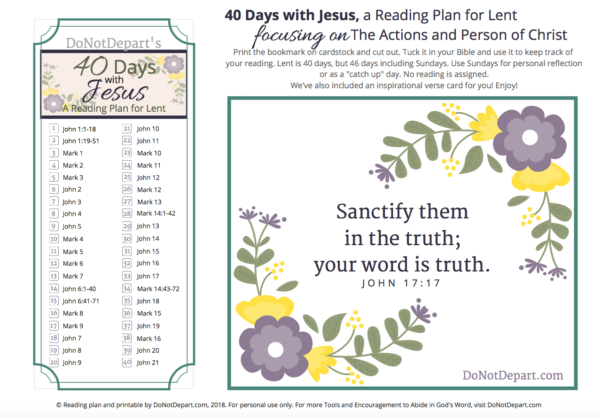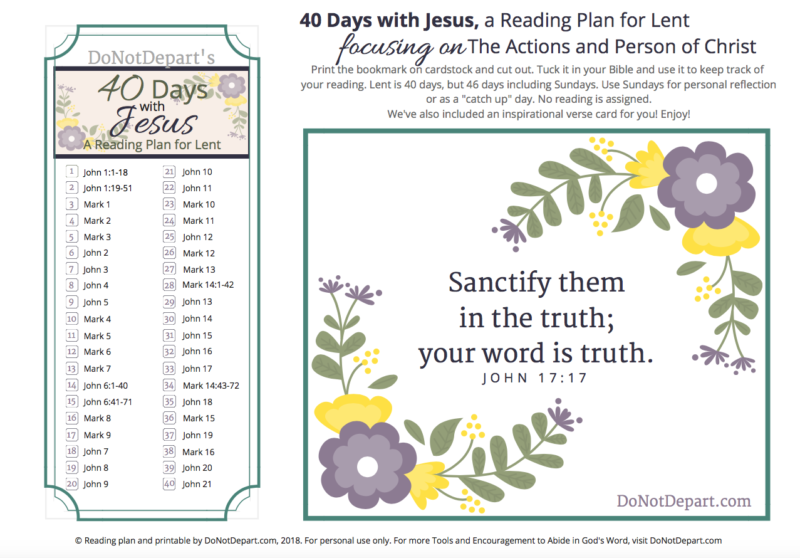Our reading plan for Lent continues this week with Mark 7 and John 6. The stories in these chapters are chock full of more truth and wonder than we have time to unpack here. But keep in mind, we are reading through the lens of who Jesus is and what he did.
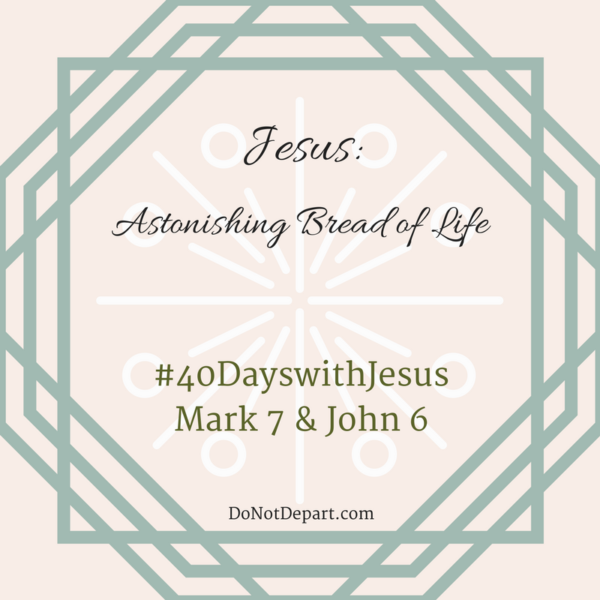
Mark 7 – Jesus is Astonishing
In Mark 7 Jesus continues to turn the world on its head. His disciples are observed eating with unwashed hands. Jesus gets right to the heart of the matter. He rebukes the Pharisees for their empty words. Their complaint had nothing to do with worshiping God. This was about honoring themselves.
Jesus came to earth and lived among us to teach us that life isn’t about following rules. It’s about following Him. Click To Tweet“And he said to them, “You have a fine way of rejecting the commandment of God in order to establish your tradition!” Mark 7:9
Privately Jesus explains to his disciples that it’s not what is outside that defiles a man, but what comes out of his heart. As a Gentile myself, I love knowing that Jesus always intended to include all people in his plan for salvation!

Finally, in the region of the Decapolis Jesus heals a deaf and mute man. Unlike so many of his other healings, he takes the man aside and touches his ears and tongue. What a beautiful picture of Jesus meeting this man where he needed him!
The people are astonished. The Greek word ekplesso is a verb meaning “to strike out, expel by blow, to be struck with amazement”. It gives me the impression of a kind of breathless wonder. Almost speechless, except in this case they just can’t stop talking about how amazing he is!
And they were astonished beyond measure, saying, “He has done all things well. He even makes the deaf hear and the mute speak.” Mark 7:37Click To TweetJohn 6:1-40 Bread for Believers
In John 6 Jesus continues showing the people who he is through miraculous signs (the same miracles we read about in Mark 6!). John gives us an idea of how the people are responding to these miracles.
Jesus feeds a crowd of five thousand (and that’s just the men!). The people, eating a miraculous meal out in the open, are reminded of Moses and manna from heaven. They want him to be king (v. 15) so much that they are willing to force him into the role. But Jesus knows what we need better than we know ourselves.
He walks on water through a storm, proving to his disciples again that he has total authority over this physical world.
The storms in life are inconsequential when compared to the presence of Jesus.Click To TweetThen they were glad to take him into the boat, and immediately the boat was at the land to which they were going. John 6:21
The people don’t understand. They chase him across the sea, wondering how he managed to get there, and again pressure him to take his place as their ruler. Moses 2.0. But Jesus tells them the most mind-bending parable of all. They want the things of this world, the temporary. He is there to give them so much more.
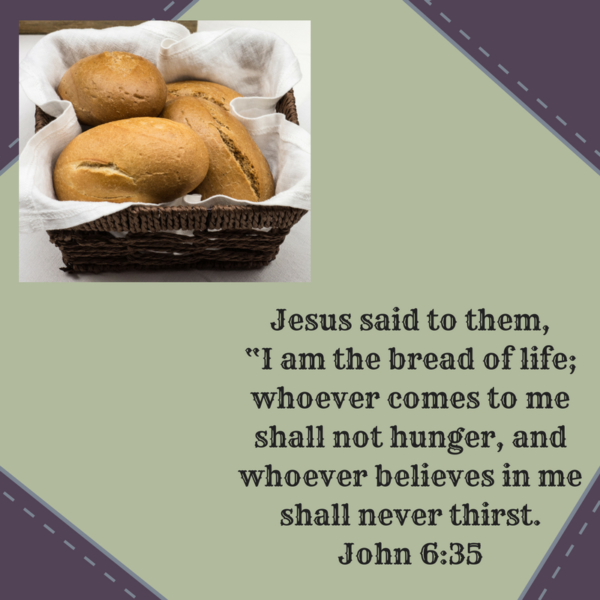
John 6:41-71 Life in the Spirit
The crowd, previously so enthusiastic, begins to grumble against Jesus. They twist his words and take offense. But Jesus knows who his words are for.
- He calls us.
No one can come to me unless the Father who sent me draws him. And I will raise him up on the last day. (v 44)
- He teaches us.
It is written in the Prophets, ‘And they will all be taught by God.’ Everyone who has heard and learned from the Father comes to me— (v45)
- He gives his life for us.
I am the living bread that came down from heaven. If anyone eats of this bread, he will live forever. And the bread that I will give for the life of the world is my flesh. (v. 51)
- He knows out hearts.
But there are some of you who do not believe.” (For Jesus knew from the beginning who those were who did not believe, and who it was who would betray him.) (v. 64)
I love this quote about bread by David Guzick. Jesus must be internalized!
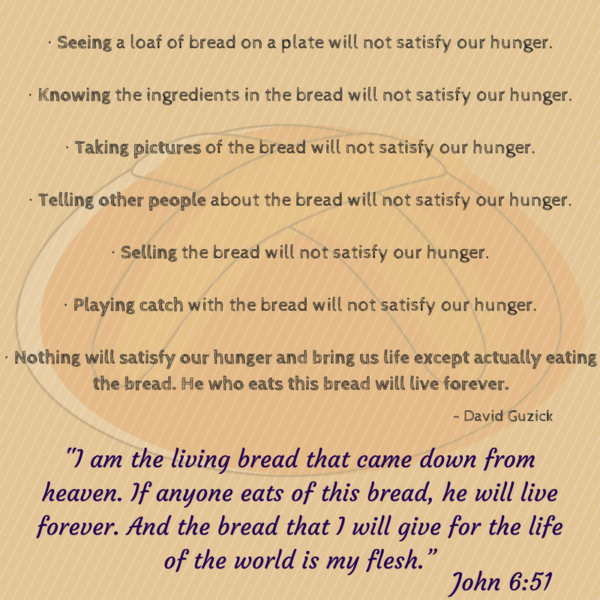
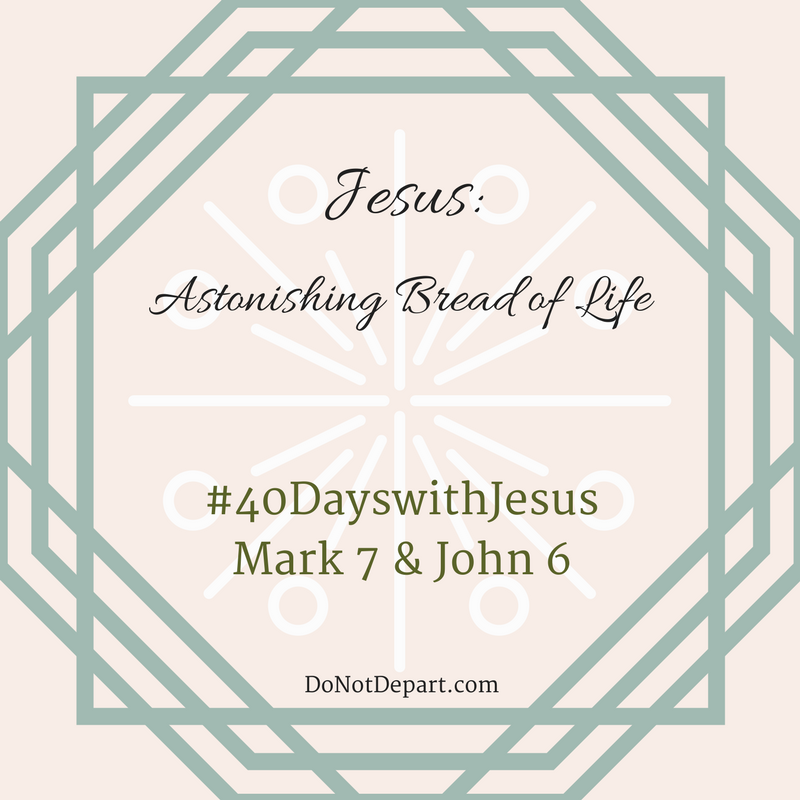

 </center
</center

